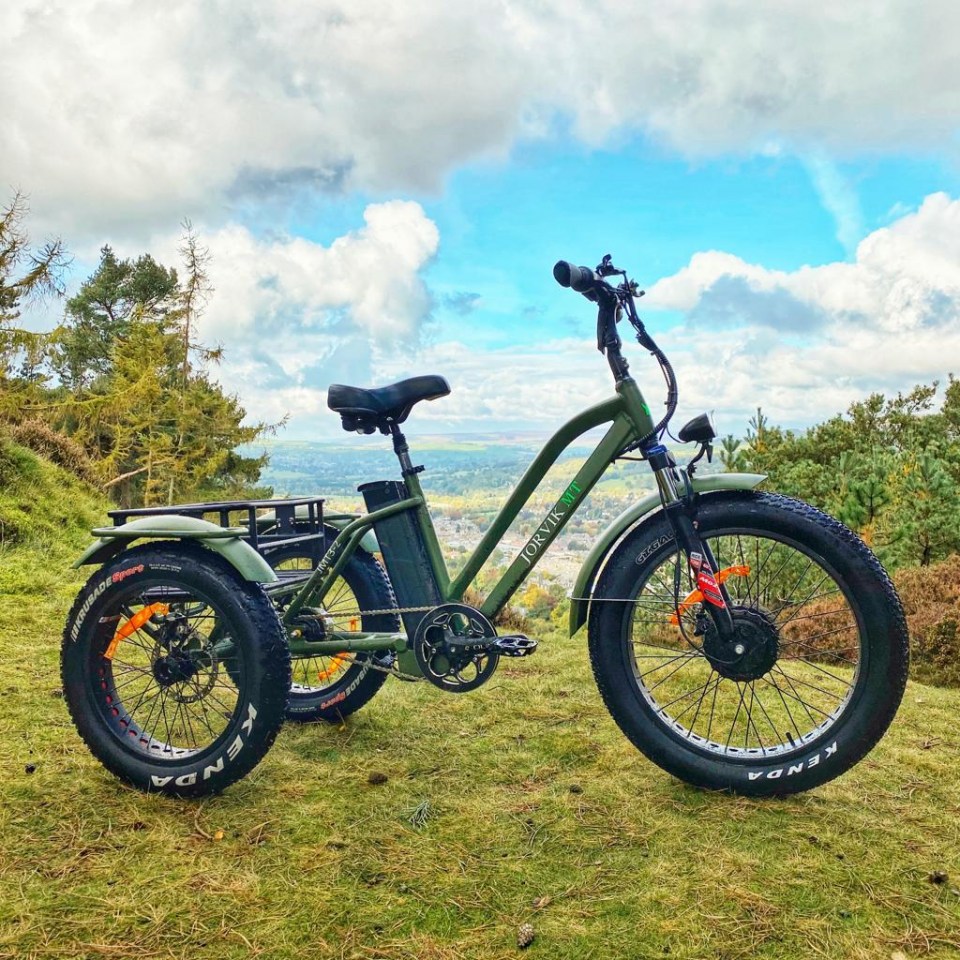How to get a full-body workout whilst cycling
23rd June, 2021

If you’re familiar with riding a bike, you’ll understand the basics of riding a tricycle, but it can take some time to get used to as they perform very differently. First and foremost, tricycles have a third wheel increasing the overall width, so be mindful when trying to fit through smaller gaps, or when cycling in the vicinity of other people. Also, riding a tricycle can feel weird for a while as you feel more supported and in control when steering.
Averagely how often should an adult be exercising each week?
It’s recommended by the NHS that adults between 19 – 64 years old should get some form of exercise every single day. That equates to either 150 minutes of moderate-intensity activity or 75 minutes of vigorous activity per week. Cycling at a steady pace counts as moderate exercise and cycling uphill or on a lower gear for longer counts as vigorous exercise.
How to exercise different parts of your body when on a tricycle
The third wheel on a tricycle lowers the centre of gravity, placing you closer to the ground, enabling the rider to reach higher speeds. For example, cycling on more challenging terrain or uphill on a bike can lead to the cyclist focusing too much on body position, maintaining balance and speed which can quickly strain the body. In comparison, whilst they may not look it at first, tricycles are much better at climbing small hills as they can reach and maintain speeds without the worry of toppling over. Allowing the rider to put their body more at ease, leaning back into the saddle and backrest.
If you’re able to, try pedalling when standing up on a tricycle. Much like you are used to, cycling whilst standing is much harder than sitting and cycling. Standing increases your heart rate, pumps the blood around your body quicker, helping you to burn calories quicker. It will also help to improve your core and body strength as you’re having to push more through your legs and hold your body upright.
Whilst cycling on flat terrain, increase the gear to a higher number and feel as pedalling becomes more challenging. Again, it will increase heart rate and blood flow around your body. We don’t recommend you doing this for a long period of time as it can become tiring.
What muscles are used when cycling?
1The quadriceps and glutes are the primary muscles activated when cycling, as they power the downwards pedalling motion. The hamstrings and calves help you pedal, as they flex your knee and hip joints.
Cycling is mostly associated with the lower body, but the core and upper body muscles also play an important role. Although they don’t directly power the movement, the muscles in your core do help to stabilise the body so that you can cycle faster and more efficiently.
What small changes you can make when cycling to build muscle
Although cycling is a full-body exercise, there are small changes you can make to the way you cycle if you want to build muscle in specific areas. One of the best ways to strengthen the quads is to cycle standing up. By supporting your own body weight, you add more resistance to each stroke which requires more work from the quads and hamstrings.
As mentioned earlier, the terrain you cycle on matters too. Cycling uphill uses more quad and calf strength, as do off-road styles of cycling, such as mountain biking. If you are cycling uphill, keep your feet firmly attached to the pedals. At Jorvik, we have a variety of trikes for sale for every terrain and need of the individual, including mountain, electric, ex-display and normal trikes.
How to maintain the muscle built
For any cyclist wanting to increase muscle mass, you should complement your rides with strength training once to three times a week. Once you reach your desired level of fitness, it's important to keep up with regular rides. As the saying goes, use it, or lose it!
Compound exercises such as squats and deadlifts are great for building and maintaining overall lower body strength. More targeted strength exercises are also useful for focusing on specific muscle groups, such as heel raises to specifically work the calves.
Many cyclists forget about the importance of diet when it comes to building muscle. Although strength exercises are important, a protein-rich diet is essential for maintaining the muscle built from cycling, as well as providing energy to fuel your bike rides.